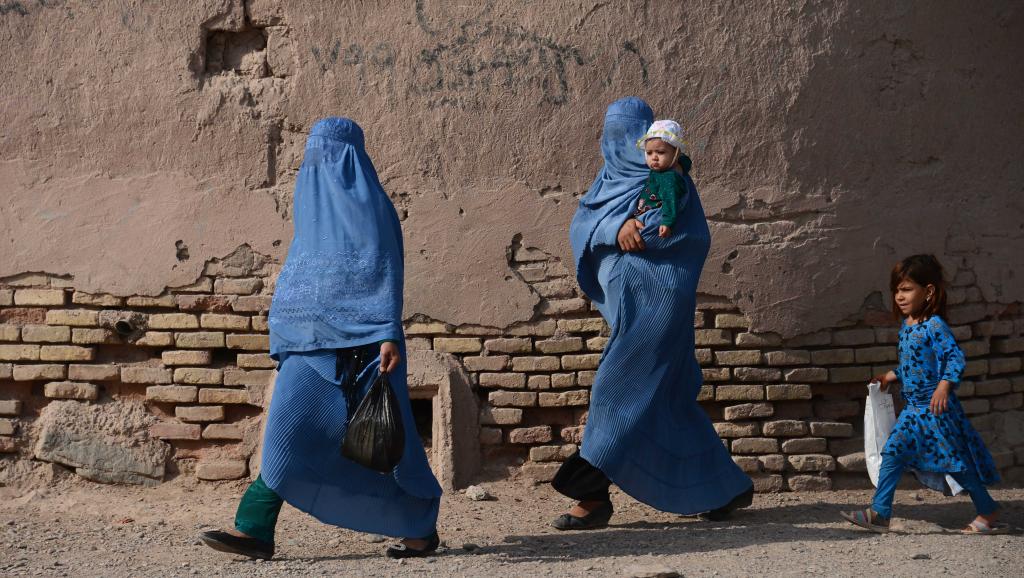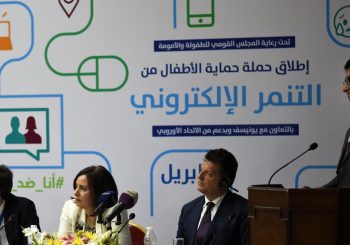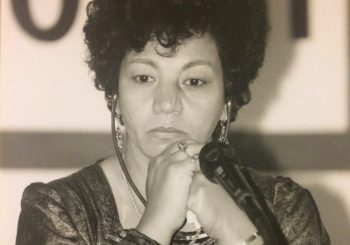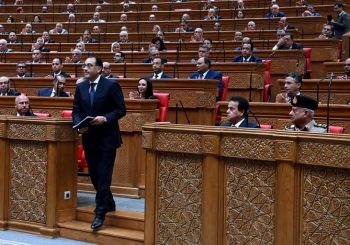In July, a group of young and brave Afghan women launched a massive campaign on social media titled “Where is my Name” to protest the laws and customs that prevented them from being called by their names in the country.
The campaign brings the traditionalist radical mentality, which is prevalent in the Islamic World and regards women as second-class citizens, to light once again.
This discriminatory practice in question makes it necessary for women, whose names are excluded from all aspects of social life, to be called only by the names of their close male relatives. Men address their wives in public with indirect and disdainful expressions, such as “Mother of the Children”, “Housefolk” or “My Weakling”.
Some Afghan men, however, go so far as to use this tradition to indulge in the humiliation of women. These people try to cover their primitive and hung-up personalities, which are the typical characteristics of the bigots, with their ugly language, addressing their wives with degrading nicknames such as “My Goat” or “My Chicken“.
It is forbidden for women to use their birth names in official documents, wedding invitations, even on tombstones. It is considered inappropriate, even insulting, to address women with their own names outside of the family environment. Afghan women are forsaken because of this and find themselves at the disposal of the men in their families in all areas of their lives, such as education and marriage.
In spite of this negative situation, there are women in Afghanistan who challenge the bigoted traditions that aim to destroy the identity of women and turn them into little more than slaves of men. Tahmina Arian, 26, a political science student participating in the campaign, said, “I really want to see things change. I am tired of seeing that in the 21st Century we still live as in the Middle Ages. It’s hard and painful. If I do not engage, if my sister does not, who will act? We have to start somewhere, and do our best.”
Tahmina Arian, 26, a political science student participating in the campaign, said, “I really want to see things change. I am tired of seeing that in the 21st Century we still live as in the Middle Ages. It’s hard and painful. If I do not engage, if my sister does not, who will act? We have to start somewhere, and do our best.”
The campaign, supported on Facebook and Twitter by thousands of people from Afghanistan as well as from all over the world including journalists, writers and artists enforce the value and the most fundamental right of women to have their own identities and names.
#WhereisMyName campaign aims to help women regain their most natural, most important and fundamental rights, the right to carry their own identity and to be called by their own name before anything else, in Afghanistan and in similar regions where the traditionalist orthodox Islamic mentality reigns.
A most vital fact revealed thanks to this campaign is that, contrary to popular belief, this degrading and discriminatory approach toward women has nothing to do with Islam and the Qur’an. In point of fact, this practice is based on the tradition of a very old and deeply-rooted Afghan tribe. It is an important symbol of the fact that women are regarded as second-class citizens and worthless in tribal culture. However, this deviance, like all other repressive and restrictive customs, was immediately adopted in the name of Islam – surely the religion of Islam is beyond that – by radical groups that embrace a bigoted religious belief which entirely contradicts with the Qur’an. With the Taliban regime taking control, this ancient custom was reinstated and this primary right that Afghan women enjoyed previously were taken away from them. In other words, Afghanistan retrogressed to the tribal era practices.
In fact, in the pre-Taliban period, women used to live a very modern, free and comfortable life in Afghanistan, which declared its independence in 1919 by freeing itself from the yoke of Britain. They enjoyed the utmost freedom in their daily lives, in the way they dressed, in their behavior and conduct.
Mohammad Humayoun Qayoumi, who was born in Kabul, the capital of Afghanistan and became a professor of engineering at San Jose University in the United States, describes in his photobook “Once Upon a Time in Afghanistan” as follows “A half-century ago, Afghan women pursued careers in medicine; men and women mingled casually at movie theaters and university campuses in Kabul…”
In 1996, the Taliban regime came to power by taking advantage of the crippled central government, and a period of unimaginable oppression, violence, and persecution began for women. It quickly became forbidden for women to be groomed, to laugh, to have fun, to go to school, to work, to express their ideas freely, to leave their houses without the permission of their husbands or the company of a male relative. The women of Afghanistan were essentially imprisoned in their own homes. Women who did not obey these ruthless and outlandish laws were beaten, whipped, or stoned to death in public squares.
Although women have re-acquired some of their rights such as going to school, going to work and voting in the wake of the collapse of the Taliban regime in 2001, the overwhelming majority of these repressive traditions and laws foisted upon them by the Taliban are, unfortunately, being continued by the new administration.
Afghan Member of Parliament Shahgul Rezaie, known for her work on women’s rights, said, “there are some radical elements in the parliament who are against these steps for women,” drawing attention to this obstacle.
This kind of cruelty and ungratefulness displayed towards women, the great grace and blessing of God, are among the greatest reasons why the Muslim world struggles so much with problems and cannot develop and become stronger. It is also worth noting that those countries in the world that are experiencing unrest generally have governments that oppress women. The only possible way for women to regain their rights and dignity is through Muslim societies renouncing this deviant traditionalist orthodox religious conception and turning to the Qur’an as the sole valid and true source of Islam. Since God has revealed in the Quran that there is no differentiation between men and women in terms of piety and that men and women have equal responsibilities when it comes to doing good works. Moreover, the Qur’an also regards women as superior to men in terms of solicitude and worth, taking great care of them.
We see in the example of the Queen of Sheba that women can rule over states. As we see in the example of Mary, the mother of the Prophet Jesus in the Qur’an, she is praised with her superior morality in her fortitude and determination at times of difficulty. In the time of our Prophet, women were involved alongside men in all areas of life. The wife of our Prophet (pbuh), Khadija, was a well-known and respected businesswoman in the region. These all show that in Islam, women could play active roles in social life, work in various occupations and take an active part in all spheres of life.
Therefore, women can break free of the chains of bondage encircling them only and solely by virtue of the Qur’an, which earns them the appreciation, dignity, and respect they truly deserve. And this can only be possible through pursuing a comprehensive educational and enlightenment policy in light of the Qur’an all across the Islamic world.
We believe that emphasizing this vital issue on the #WhereisMyName campaign, which will hopefully serve as a good means for regaining the usurped rights of women, will contribute enormously to the objective and purpose of the campaign.







Comments (6)
[…] https://egyptianstreets.com/2017/09/23/social-media-campaign-to-help-afghan-women-break-free-from-th… […]
[…] https://egyptianstreets.com/2017/09/23/social-media-campaign-to-help-afghan-women-break-free-from-th… […]